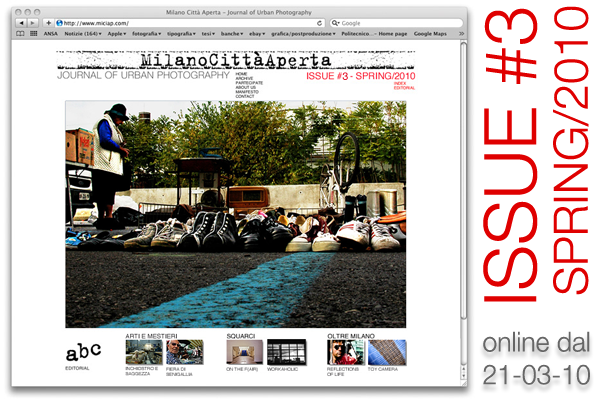EDITORIAL
Italy has the most ancient universities in the world. But it would be better to say: "the oldest". A few days ago, the minister of Economy, coherently with his vision of society, declared: "la cultura non si mangia"*. He's right: whoever wants to study and eat as well, in this country, has to go abroad. Otherwise he/she can fight. Climbing roofs, facing truncheons, occupying faculties. Conscious that tomorrow the situation won't have changed.
As we know, the Italian university system is at its last gasp. But inside it there are forces that exist and endure, despite the systematic repression (economic, cultural and at times also physical) they have undergone for decades. And they manage to - make themselves heard.
A sure sign of this is, for instance, the research that we here introduce.
The department of Architecture and Urban Planning of the Politecnico of Milan, in collaboration with AIM (Agency for Metropolitan Interests), commissioned students and researchers an enquiry about the university system's impact from a social, urban and cultural point of view. The result is the publication: "Milano, la cittĂ degli studi. Storia, geografia e politiche delle universitĂ milanesi"**, Some of the works published have been realized by members of MilanoCittĂ Aperta.
University as a space of work and of daily life, as a chance of estethic change of the outskirts, as a multi-ethnic meeting point, as a mediation territory between city and country, as a chance to study the human being, as a stage on the path of education and professional training.
This issue of miciap proposes works that talk about our city, about the young that study -here and their relationship with the public system of knowledge.
Trying to change things, bsides understanding them.
* culture can’t be eaten
** Milan, city of studies. History, geography and policies of universities in Milan.


